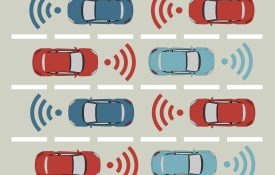-
The racial wealth divide is worse than people think—and it’s growing
Quartz: Wealthy white households control the vast majority of the nation’s economic resources, and they appear to have no idea how the rest of society lives. It’s pleasant to think history is marching towards a more fair and equitable society. Things might be a bit rough around the edges right now, but there’s progress, the story goes. Unfortunately, when it comes to the deep racial wealth divide in the United States, the numbers just don’t back this up. Rather than closing, if we don’t take steps to change the course we’re on, that gap could go on growing forever. Read the whole story: Quartz
-
BLACK-WHITE WAGE GAP GROWS AS AMERICANS REMAIN IN DENIAL
Pacific Standard: A new study finds Americans wildly overestimate the progress we have made toward racial economic equality. Ironically, this news comes days after other research revealed a growing wage gap between blacks and whites, as well as an entrenched hiring bias against African Americans. "These findings suggest a profound misperception of, and unfounded optimism regarding, societal race-based economic equality," concludes a research team led by Michael Kraus of the Yale University School of Management. Read the whole story: Pacific Standard
-
Being empathetic is good, but it can hurt your health
The Washington Post: Your husband was just passed over for a promotion, and he’s depressed. Your friend’s breast cancer has returned. As a supportive spouse and friend, you feel their pain. Growing research suggests there’s a cost to all that caring. Empathy — the ability to tune into and share another person’s emotion from their perspective — plays a crucial role in bringing people together. It’s the joy you feel at a friend’s wedding or the pain you experience when you see someone suffering. It’s an essential ingredient for building intimacy in relationships, says Robin Stern, associate director of the Yale Center for Emotional Intelligence.
-
Does Happiness Really Make You Healthier? It Depends on Where You Live
New York Magazine: I am an Eeyore; I know this. I’m a glass-half-empty, worst-case-scenario, dwell-on-the-imperfections, existential-dread ruminating worrywart, and I envy the people I encounter who seem to effortlessly exude perkiness and fun. That’s not to say there’s no joy in my life; it just doesn’t come as naturally to me as it appears to for others. And yet despite fully meeting the textbook definition of “the opposite of an optimist,” I’ve never thought to label myself a pessimist. ... Now, new research seems to show that cultural perceptions of mental states may indeed mediate their physical effect.
-
New Research From Psychological Science
Read about the latest research published in Psychological Science: Topological Relations Between Objects Are Categorically Coded Andrew Lovett and Steven L. Franconeri How do people compare images? The authors hypothesized that people use categorical relations between objects rather than metric changes of objects when comparing images. The researchers examined three topographical categories (overlapping, touching, and containing) in four studies in which participants were shown pairs of filled or unfilled circles that were briefly masked before reappearing. Participants were instructed to indicate whether the circles had changed or stayed the same.
-

Self-Driving Cars Face Psychological Speed Bumps
Industry and regulators seem ready to embrace autonomous cars, but consumers still need to be brought on board.

